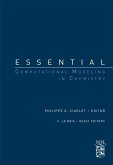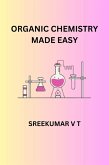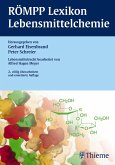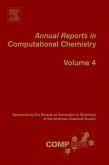"The Organic Chemistry Handbook: Essential Principles and Applications" is an indispensable guide for students, researchers, and professionals in the field of organic chemistry. This comprehensive handbook covers essential principles, fundamental concepts, advanced methodologies, and real-world applications of organic chemistry across various domains.
Key Features:
Foundational Principles: The book provides a solid foundation in organic chemistry, covering topics such as molecular structure, bonding, nomenclature, and stereochemistry. Readers gain a deep understanding of the fundamental principles that govern organic compounds and reactions.
Synthetic Strategies: From functional group interconversions to complex synthesis pathways, the handbook explores a range of synthetic strategies used in organic chemistry. It delves into retrosynthetic analysis, protecting group strategies, multistep synthesis, and stereochemical considerations in synthetic design.
Reaction Mechanisms: Detailed discussions on reaction mechanisms elucidate how organic compounds undergo transformations. Mechanistic insights into key reactions such as substitution, elimination, addition, and rearrangement provide a comprehensive understanding of organic reaction pathways.
Functional Group Chemistry: The book covers a wide array of functional groups, including alkanes, alkenes, alkynes, aromatics, alcohols, carbonyl compounds, acids, amines, and heterocyclic compounds. Each functional group is explored in terms of structure, nomenclature, reactions, and synthetic applications.
Applications in Industry: A dedicated section explores the applications of organic chemistry in various industries, including pharmaceuticals, petrochemicals, materials science, agrochemicals, and environmental sustainability. Readers gain insights into how organic chemistry principles drive innovation and progress in industrial sectors.
Medicinal Chemistry and Drug Discovery: A comprehensive chapter focuses on organic chemistry's role in medicine and drug discovery. It covers topics such as target identification, hit generation, lead optimization, synthetic methods in drug synthesis, structural elucidation, case studies in drug discovery, and emerging trends in pharmaceutical research.
Analytical Techniques: The handbook introduces essential analytical techniques used in organic chemistry, including spectroscopy (NMR, IR, UV-Vis), mass spectrometry, chromatography, and crystallography. Readers learn how to analyze and characterize organic compounds using these techniques.
In summary, "The Organic Chemistry Handbook: Essential Principles and Applications" is an authoritative resource that equips readers with the knowledge, skills, and insights needed to navigate the complexities of organic chemistry, from foundational principles to advanced applications in industry and academia.
Key Features:
Foundational Principles: The book provides a solid foundation in organic chemistry, covering topics such as molecular structure, bonding, nomenclature, and stereochemistry. Readers gain a deep understanding of the fundamental principles that govern organic compounds and reactions.
Synthetic Strategies: From functional group interconversions to complex synthesis pathways, the handbook explores a range of synthetic strategies used in organic chemistry. It delves into retrosynthetic analysis, protecting group strategies, multistep synthesis, and stereochemical considerations in synthetic design.
Reaction Mechanisms: Detailed discussions on reaction mechanisms elucidate how organic compounds undergo transformations. Mechanistic insights into key reactions such as substitution, elimination, addition, and rearrangement provide a comprehensive understanding of organic reaction pathways.
Functional Group Chemistry: The book covers a wide array of functional groups, including alkanes, alkenes, alkynes, aromatics, alcohols, carbonyl compounds, acids, amines, and heterocyclic compounds. Each functional group is explored in terms of structure, nomenclature, reactions, and synthetic applications.
Applications in Industry: A dedicated section explores the applications of organic chemistry in various industries, including pharmaceuticals, petrochemicals, materials science, agrochemicals, and environmental sustainability. Readers gain insights into how organic chemistry principles drive innovation and progress in industrial sectors.
Medicinal Chemistry and Drug Discovery: A comprehensive chapter focuses on organic chemistry's role in medicine and drug discovery. It covers topics such as target identification, hit generation, lead optimization, synthetic methods in drug synthesis, structural elucidation, case studies in drug discovery, and emerging trends in pharmaceutical research.
Analytical Techniques: The handbook introduces essential analytical techniques used in organic chemistry, including spectroscopy (NMR, IR, UV-Vis), mass spectrometry, chromatography, and crystallography. Readers learn how to analyze and characterize organic compounds using these techniques.
In summary, "The Organic Chemistry Handbook: Essential Principles and Applications" is an authoritative resource that equips readers with the knowledge, skills, and insights needed to navigate the complexities of organic chemistry, from foundational principles to advanced applications in industry and academia.
Dieser Download kann aus rechtlichen Gründen nur mit Rechnungsadresse in A, B, CY, CZ, D, DK, EW, E, FIN, F, GR, H, IRL, I, LT, L, LR, M, NL, PL, P, R, S, SLO, SK ausgeliefert werden.









